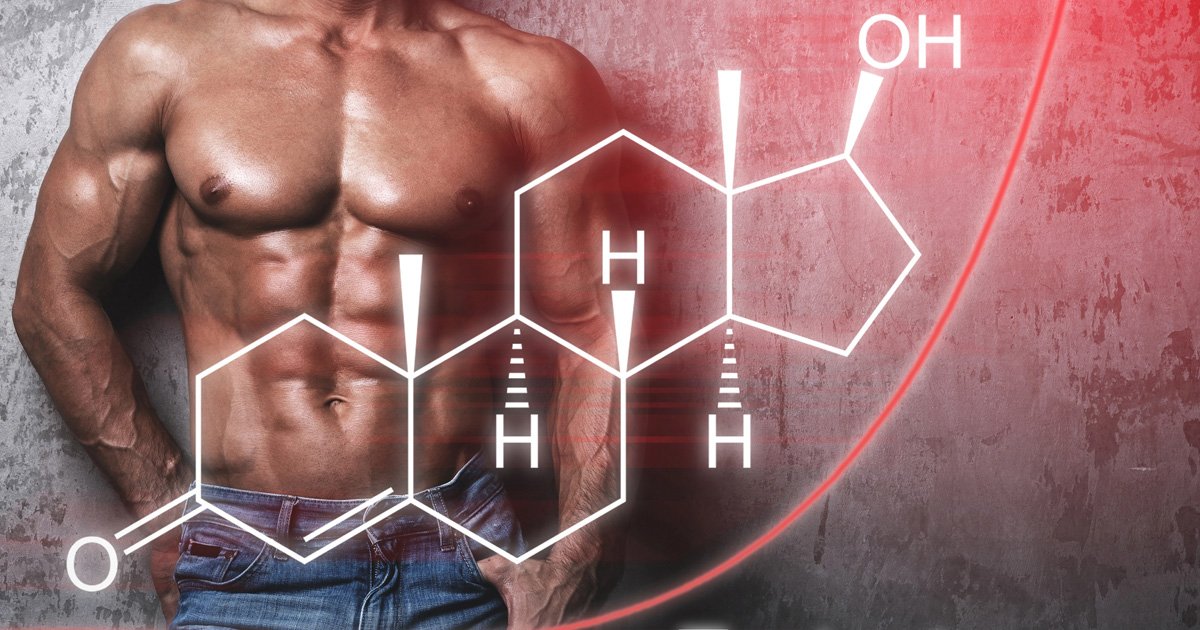The Connection Between Testosterone and Men’s Well-being
Think about testosterone for a moment, and what usually comes to mind? Muscles, masculinity, and libido often top the list, right? But there’s so much more to this hormone than meets the eye. While these are certainly tied to testosterone, the hormone’s impact on men’s well-being goes far beyond the physical.
Testosterone plays a pivotal role in nearly every aspect of a man’s health—from mental clarity and emotional balance to cardiovascular health and energy levels.
In this article, we’ll explore the intricate connection between testosterone and men’s well-being, diving into the science behind it and offering practical tips for optimizing this vital hormone.
Understanding Testosterone: The Basics
Testosterone is often called the driving force behind male health. It’s mostly made in the testes, with a smaller contribution from the adrenal glands. While it’s commonly associated with men, women also produce testosterone, albeit in much smaller quantities.
In men, testosterone levels peak during adolescence and early adulthood. After the age of 30, levels typically begin to decline by about 1% per year. This gradual decrease is normal but can lead to noticeable changes in physical, mental, and emotional health. Low testosterone levels, often referred to as hypogonadism, can significantly affect a man’s quality of life.
How Testosterone Affects Physical Health
1. Muscle Mass and Strength
Testosterone is integral to building and maintaining muscle mass. It’s no secret that higher testosterone levels make it easier to gain strength and recover from workouts. Research shows that testosterone increases protein synthesis, a process critical for muscle repair and growth.
2. Fat Distribution
Low testosterone levels are often linked to increased fat accumulation, particularly around the abdomen. This type of visceral fat not only affects appearance but also poses significant health risks, such as insulin resistance and cardiovascular issues.
3. Bone Density
Strong bones are crucial for overall health, especially as we age. Testosterone plays a key role in maintaining bone mineral density, reducing the risk of fractures and osteoporosis in older men.
Testosterone’s Role in Mental and Emotional Well-being
1. Mood and Emotional Health
Have you ever experienced the “low T blues”? That’s when a dip in testosterone levels takes a toll on your mood—and yes, it’s as real as it sounds. Low levels have been linked to feelings of depression, irritability, and anxiety. This connection is believed to stem from testosterone’s role in regulating neurotransmitters such as serotonin and dopamine—key players in emotional balance.
2. Cognitive Function
Testosterone also supports cognitive health. Studies suggest that optimal levels may improve memory, focus, and overall mental clarity. Conversely, low testosterone has been associated with an increased risk of cognitive decline and conditions like Alzheimer’s disease.
3. Confidence and Motivation
A man’s sense of drive and self-assurance is often influenced by testosterone. Adequate levels of this hormone can enhance motivation and reduce feelings of self-doubt, which are crucial for personal and professional success.
Cardiovascular Health and Testosterone
The relationship between testosterone and heart health is a subject of ongoing research, but we do know this: low testosterone levels have been linked to an increased risk of heart disease. Testosterone contributes to the production of red blood cells, which support oxygen transport and overall cardiovascular function. However, excessively high levels—often due to misuse of anabolic steroids—can have adverse effects, such as elevated blood pressure and increased risk of blood clots.
Testosterone Levels and Energy
If you’re constantly feeling fatigued, low testosterone might be part of the equation. Testosterone is vital for maintaining energy levels, as it influences mitochondrial function (the powerhouse of cells). By optimizing testosterone levels, many men experience improved stamina and reduced chronic fatigue.
Factors That Influence Testosterone Levels
Your lifestyle and surroundings play a big role in influencing your testosterone levels. Here are some key factors to consider:
- Diet: A diet high in processed foods and low in essential nutrients can suppress testosterone production.
- Exercise: Resistance training and high-intensity interval training (HIIT) have been shown to boost testosterone levels naturally.
- Sleep: Poor sleep hygiene is a major contributor to low testosterone. Studies show that inadequate sleep can lower testosterone levels by up to 15%.
- Stress: Chronic stress leads to elevated cortisol levels, which can suppress testosterone production.
- Environmental Toxins: Exposure to endocrine-disrupting chemicals, such as BPA and phthalates, can interfere with hormone balance.
Signs of Low Testosterone
Recognizing the signs of low testosterone is the first step toward addressing the issue. Common symptoms include:
- Decreased sex drive
- Erectile dysfunction
- Fatigue
- Loss of muscle mass
- Increased body fat
- Mood swings
- Difficulty concentrating
If you’re experiencing these symptoms, it’s worth discussing them with a healthcare provider. Blood tests can confirm whether low testosterone is the underlying issue.
How to Naturally Optimize Testosterone and Well-being Levels
1. Prioritize Strength Training
Resistance exercises like weightlifting are among the most effective ways to boost testosterone. Aim for compound movements such as squats, deadlifts, and bench presses, which engage multiple muscle groups.
2. Get Quality Sleep
Strive for 7-9 hours of quality sleep per night. Establishing a consistent sleep routine and creating a sleep-friendly environment can make a big difference.
3. Maintain a Balanced Diet
Include plenty of healthy fats (such as avocados, nuts, and olive oil), lean proteins, and complex carbohydrates. Micronutrients like zinc and vitamin D are particularly important for testosterone production.
4. Manage Stress
Incorporate stress-reducing practices like meditation, yoga, or deep breathing into your daily routine. Lowering cortisol levels helps maintain optimal testosterone levels.
5. Minimize Toxin Exposure to Increase Testosterone and Well-being
Reduce exposure to plastics, pesticides, and other chemicals that can disrupt hormones. Opt for glass or stainless steel containers, and choose organic produce whenever possible.
When to Consider Medical Intervention
Sometimes, even with the best lifestyle tweaks, testosterone levels might not fully bounce back to where they should be. In these cases, testosterone replacement therapy (TRT) might be an option. This involves administering testosterone via injections, patches, or gels under the supervision of a healthcare provider. While TRT can be highly effective, it’s not without risks, so it’s essential to weigh the pros and cons with a medical professional.
Also, (TRT) is not enough to raise both testosterone and well-being.
Final Thoughts on the Connection Between Testosterone and Men’s Well-being
Testosterone is much more than a sex hormone; it’s a cornerstone of men’s physical, mental, and emotional well-being. While a natural decline in testosterone is part of aging, it doesn’t mean you’re powerless. By adopting healthy lifestyle habits and addressing potential deficiencies, you can optimize your testosterone levels and live a vibrant, energetic life.
Remember, it’s always a good idea to consult with a healthcare provider before making significant changes to your health routine. Knowledge is power, and taking control of your hormonal health can pave the way for a happier, healthier you.
Sources on Testosterone and Well-being:
Harvard Health: Testosterone and men’s health
National Institutes of Health: Testosterone and Well-being
Dietary factors affecting testosterone



